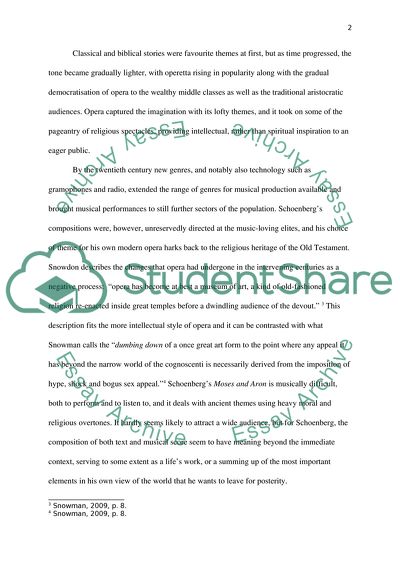Cite this document
(What is Opera - Reference to Moses and Aron by Schoenberg Essay, n.d.)
What is Opera - Reference to Moses and Aron by Schoenberg Essay. https://studentshare.org/music/1770531-what-is-opera-and-make-reference-to-the-opera-called-moses-and-aron-by-schoenberg
What is Opera - Reference to Moses and Aron by Schoenberg Essay. https://studentshare.org/music/1770531-what-is-opera-and-make-reference-to-the-opera-called-moses-and-aron-by-schoenberg
(What Is Opera - Reference to Moses and Aron by Schoenberg Essay)
What Is Opera - Reference to Moses and Aron by Schoenberg Essay. https://studentshare.org/music/1770531-what-is-opera-and-make-reference-to-the-opera-called-moses-and-aron-by-schoenberg.
What Is Opera - Reference to Moses and Aron by Schoenberg Essay. https://studentshare.org/music/1770531-what-is-opera-and-make-reference-to-the-opera-called-moses-and-aron-by-schoenberg.
“What Is Opera - Reference to Moses and Aron by Schoenberg Essay”. https://studentshare.org/music/1770531-what-is-opera-and-make-reference-to-the-opera-called-moses-and-aron-by-schoenberg.


